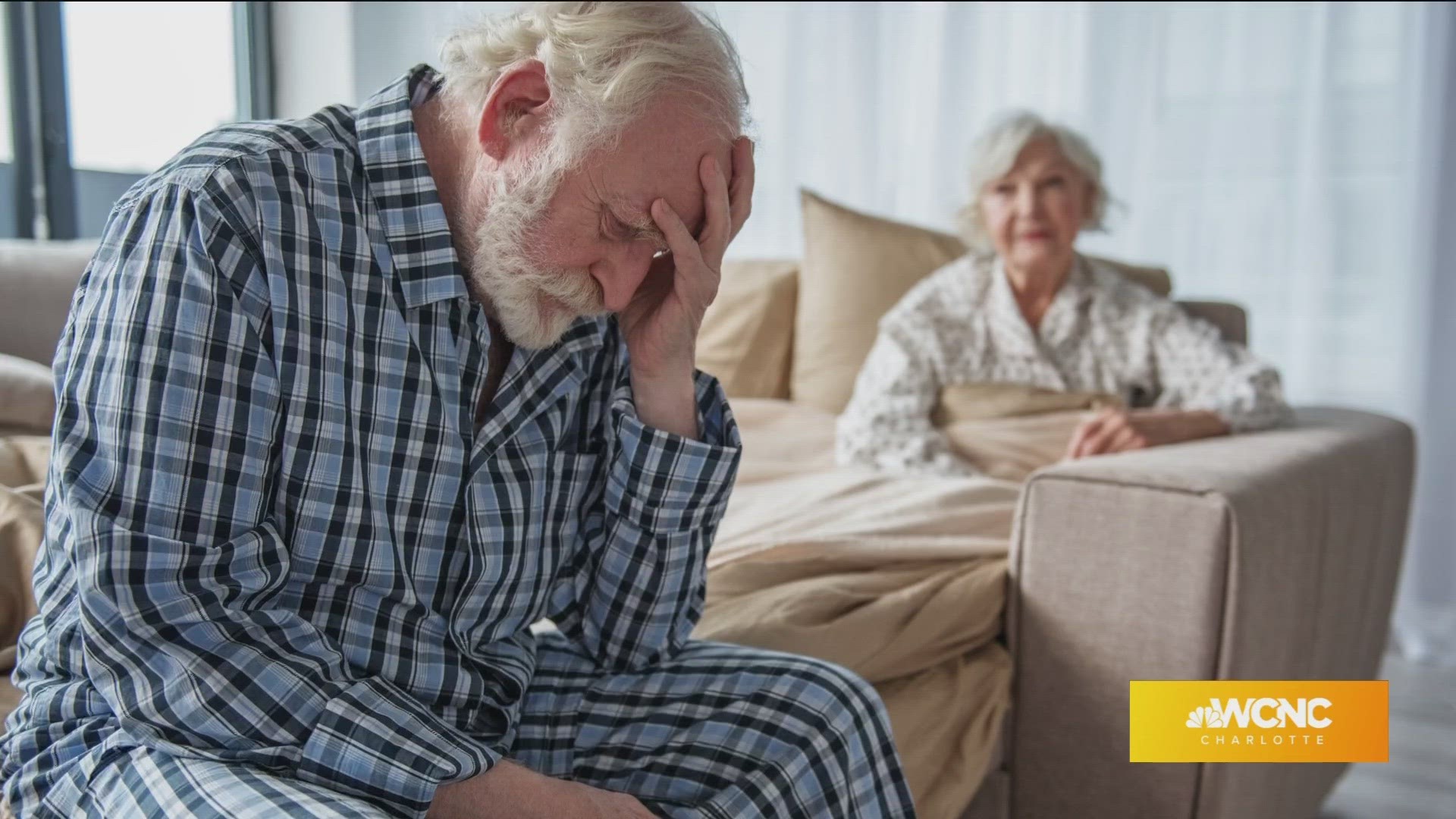CHARLOTTE, N.C. — There is a public health crisis of loneliness, isolation and lack of connection in our country. Loneliness among our older adults is an epidemic. Here to talk more about it, is friend of the show and aging expert Anthony Cirillo. The
United States Surgeon General, Dr. Vivek Murthy released a new Surgeon General Advisory calling attention to the public health crisis of loneliness. Even before the onset of the COVID-19 pandemic, approximately half of U.S. adults reported experiencing measurable levels of loneliness.
Loneliness has been equated to smoking 15 cigarettes a day. There is a disconnection that fundamentally affects our mental, physical, and societal health. In fact, loneliness and isolation increase the risk for individuals to develop mental health challenges in their lives, and lacking connection can increase the risk for premature death. But there is a difference between being alone and feeling lonely. I wrote an article for Sixty and Me on loneliness, which, gathered a number of comments. The consensus being “you can be alone but not lonely”.
Being “alone” is a physical state where you are physically by yourself. Being ‘lonely’ is an emotional state where you are feeling alone or disconnected from others, even when they’re right next to you.” Cirillo goes on to explain, there are two paths: people who are truly lonely and people who are alone but not lonely. So how do we address each.
People who are lonely amount to 15 million people in the U.S. are elder orphans; that is the worst case. Lonely people need to evaluate your circumstances. Are you in the best health you can be? Evaluate your eating habits. Are you a couch potato? Look at your exercise routine. Staying healthy is the key to aging in place, in your home – a thing most people want to do and financially have to do, in many cases. Do you have an active social network? Surround yourself with people. In essence, this is like forming a ‘family’ to substitute for a spouse and children. Create a lifestyle that does not isolate you as isolation leads to depression. Consider a move from a suburban area where you need a car to get around. That urban environment encourages walking, being in nature and making new friends. Be Mentally Active or join the Elder Orphan Facebook Group.
"People who are alone but not lonely is not a bad thing at all” says Cirillo. There are actually studies on how to be alone in a healthy way. Actually, being alone is a great opportunity to get to know yourself. You can enjoy solitary activities. “I love this one because I am a solo musician and have spent countless hours in my studio recording or in my garage rehearsing” says Cirillo. He goes on to say “It is therapeutic, not to mention all the side benefits that music provides for your mind and emotional state.” You need never be bored because you are by yourself.
Go out on a Date with Yourself. I am perfectly content going somewhere for a bite to eat or going to a movie all by myself. Don’t Let the demons creep in. Sometimes too much alone time causes over-thinking. In the solitude, buried emotions, memories, or problems can surface. It’s OK to be curious about these emotions and to explore them. Embrace Self-Care. Yes, the gurus suggest meditation and yoga. But here’s the thing. Don’t be a couch potato. Stay moving. If that means exercise, fine. If that means knitting, fine. Just stay active in the solitude. Scrolling on social media or watching television may feel restorative after a stressful day at work or it may distract you from more fulfilling pursuits.
For more information visit SageStream.live

